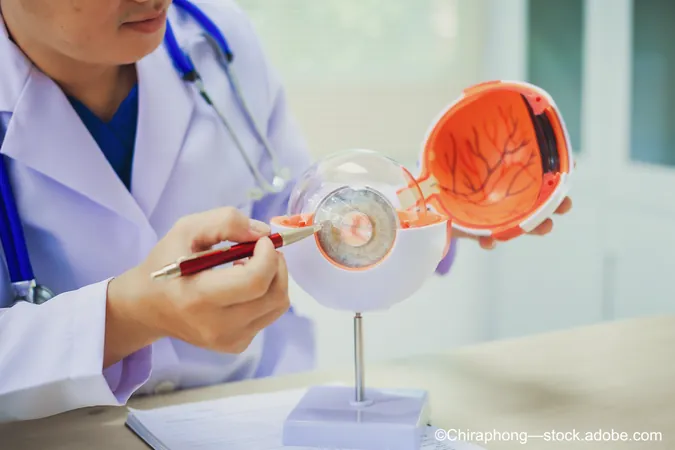
Revolutionary Breakthrough in Fuchs Dystrophy Treatment: Descemet Stripping Only Shows Long-term Success!
2024-12-26
Author: Wei
Fuchs Endothelial Corneal Dystrophy (FECD) and Treatment Advancements
Fuchs endothelial corneal dystrophy (FECD) is a degenerative condition affecting the corneal endothelium, and advancements in its treatment have surged over the past couple of decades. One of the most promising surgical techniques emerging in this area is Descemet stripping only (DSO), which has garnered attention for its favorable outcomes.
Presentation by Dr. Deepinder Dhaliwal
During a recent session of the Journal Club at NYU Grossman School of Medicine, renowned cornea and refractive surgeon Dr. Deepinder Dhaliwal from the University of Pittsburgh highlighted fascinating new research detailing long-term results from DSO procedures in treating FECD.
Traditional Treatment Approaches
Traditionally, FECD has been managed through more invasive approaches such as Descemet membrane endothelial keratoplasty (DMEK) or Descemet stripping endothelial keratoplasty (DSEK). However, DSO distinguishes itself by removing the compromised Descemet membrane and associated endothelial tissue without the need for donor tissue. This pioneering method significantly reduces the risk of complications associated with donor tissue, such as graft rejection and side effects from necessary steroid use.
The Natural Healing Process of DSO
The beauty of DSO lies in its ability to harness the natural healing process of the eye. In suitably selected patients—those with central guttae but healthy peripheral endothelium—this technique can lead to the regeneration of normal endothelial cells from the periphery, effectively restoring corneal clarity.
Rho Kinase Inhibitors and Their Potential
Notably, recent studies have suggested that adding a Rho kinase inhibitor like ripasudil during the procedure could enhance postoperative healing and improve the density of endothelial cells in the cornea. Despite previous reports showing promise for DSO, they were limited in scope, with little long-term follow-up data.
Dr. Dhaliwal’s Findings
Dr. Dhaliwal’s recent study marks a significant development in this field, presenting the largest cohort to date with 11 patients and 13 eyes that underwent DSO. Impressively, the follow-up period extended to as long as 6 years for several patients. The findings indicated that a whopping 92% achieved successful outcomes post-surgery, with a remarkable 10 out of 11 eyes showing visual acuities of 20/40 or better at the six-month mark. Only a minor fraction—17%—experienced complications serious enough to later require a DMEK.
Future Implications and Ongoing Research
What’s particularly exciting is that many participants had DSO before the potential advantages of Rho kinase inhibitors were fully recognized, suggesting that the long-term results could be even more beneficial if combined with these cutting-edge medications.
Conclusion and Future Research Directions
These long-term insights underscore the pivotal role DSO could play in managing FECD, delivering not only immediate visual improvement but lasting benefits for patients. As this research paves the way for future studies, a spotlight remains on the synergy between DSO and Rho kinase inhibitors, with eye health professionals eagerly anticipating new outcomes.
Hope for Patients with FECD
In closure, the findings presented by Dr. Dhaliwal reinforce the growing support for DSO as a viable treatment option, providing hope to countless patients suffering from FECD. The eye care community eagerly awaits ongoing research that promises to refine these emerging treatment strategies and to further elevate the standard of care for this challenging condition.





 Brasil (PT)
Brasil (PT)
 Canada (EN)
Canada (EN)
 Chile (ES)
Chile (ES)
 España (ES)
España (ES)
 France (FR)
France (FR)
 Hong Kong (EN)
Hong Kong (EN)
 Italia (IT)
Italia (IT)
 日本 (JA)
日本 (JA)
 Magyarország (HU)
Magyarország (HU)
 Norge (NO)
Norge (NO)
 Polska (PL)
Polska (PL)
 Schweiz (DE)
Schweiz (DE)
 Singapore (EN)
Singapore (EN)
 Sverige (SV)
Sverige (SV)
 Suomi (FI)
Suomi (FI)
 Türkiye (TR)
Türkiye (TR)